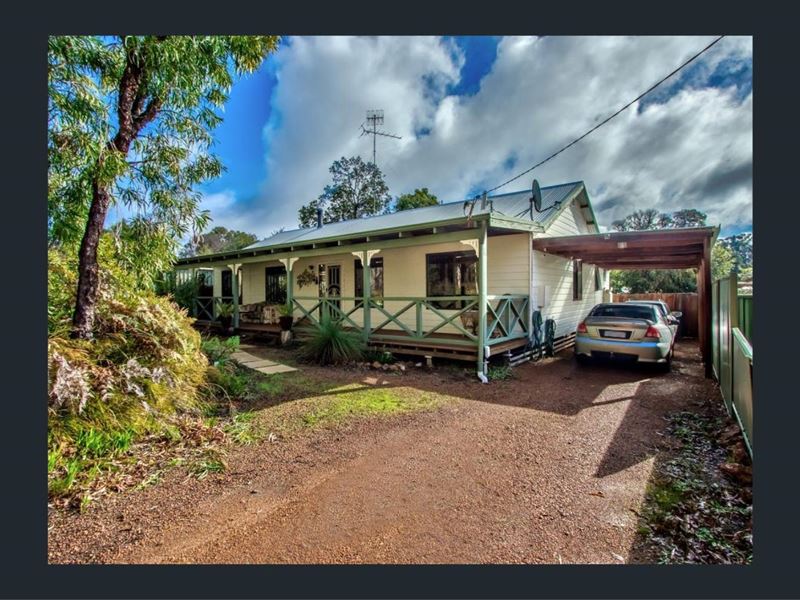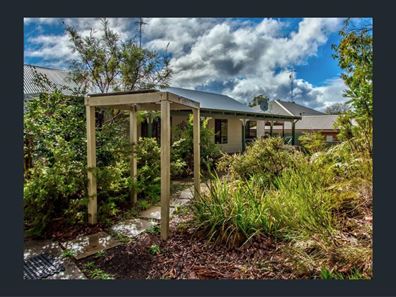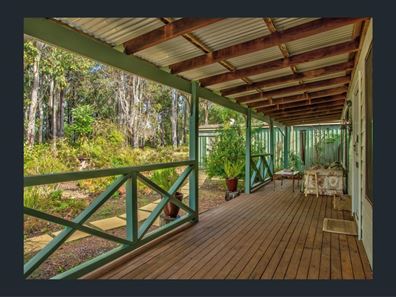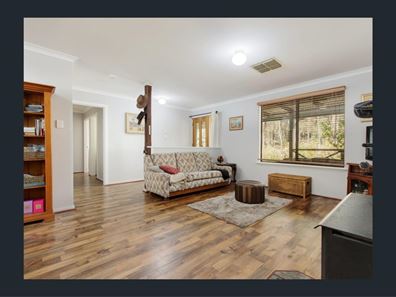On the forest edge.
Welcome to 18 Begonia Court Dwellingup! This stunning 4-bedroom, 2-bathroom house is the epitome of modern living. Situated on a generous land area of 1785 sqm, this property offers ample space for you and your family to enjoy.
Step inside and be greeted by the impeccable architecture and stylish design that flows throughout the home. The spacious bedrooms provide a comfortable retreat, while the bathrooms exude luxury with their modern fixtures and fittings.
The building area of 1379 sqm ensures that there is plenty of room for all your living needs. The open-plan layout seamlessly connects the living, dining, and kitchen areas, creating a perfect space for entertaining guests or simply relaxing with your loved ones.
The interior design of this property is truly remarkable, with attention to detail evident in every corner. The home decor has been carefully curated to create a warm and inviting atmosphere, making you feel right at home from the moment you step inside.
But the beauty of this property doesn't end indoors. Step outside and discover the expansive patio, perfect for enjoying the fresh air and hosting outdoor gatherings. The pergola provides shade on sunny days, while the porch offers a cozy spot to relax and unwind.
Located in the sought-after area of Dwellingup, this property offers a peaceful and serene lifestyle, away from the hustle and bustle of the city. With its close proximity to amenities, schools, and parks, you'll have everything you need right at your fingertips.
Don't miss out on the opportunity to make this house your dream home, so act fast and secure your slice of paradise at 18 Begonia Court Dwellingup.
Contact us today to arrange a viewing and experience the beauty of this property for yourself.
Property features
-
Floor area 1,379m2
Property snapshot by reiwa.com
This property at 18 Begonia Court, Dwellingup is a four bedroom, two bathroom house sold by Dino Brescacin at Acton | Belle Property Dalkeith on 01 Dec 2023.
Looking to buy a similar property in the area? View other four bedroom properties for sale in Dwellingup or see other recently sold properties in Dwellingup.
Cost breakdown
-
Council rates: $1,930 / year
-
Water rates: $275 / year
Nearby schools
Dwellingup overview
Dwellingup is located in a timber and fruitgrowing area in the Darling Range ESE of Pinjarra. Townsite lots were surveyed at this place by Surveyor W.F. Rudall in 1909 after the Lands Department became aware that the site was planned as the terminus of the "Pinjarra-Marrinup Railway". Names suggested for the place by Rudall were "Dwellingerup" or "Marrinup", after nearby brooks, or "McLarty" after a local MLA who had been very active concerning the railway. Surveyor General H.F. Johnston chose "Dwellingupp" after being misinformed regarding the spelling of Dwellingerup Brook. Ignoring a suggestion from the Under Secretary to amend the name to "Dwellingdown", the Minister for Lands approved the name as "Dwellingup" in December 1909. Eventually, the spelling "Dwellingupp" was chosen by order of the Under Secretary for Lands, and the townsite was gazetted as Dwellingupp in February 1910. The spelling was amended to Dwellingup in 1915. Dwellingup is an Aboriginal name said to mean "place of nearby water". The town was burnt out by a bushfire in 1961 but was rebuilt.
The double 'p' spelling in the original gazettal of this name was used because the Lands and Surveys Department had adopted a system for spelling Aboriginal names developed by the Royal Geographical Society. A number of Aboriginal names ending in "up" were for a time spelt with the "upp" ending (including Kirupp, Kulikupp, Manjimupp and Mungalupp). The RGS system had a rule that vowels are pronounced as in Italian and consonants as in English. This would have meant that names ending in "up" should have been pronounced as "oop", because the Italian "u" was a long "u", as in flute. These Aboriginal names were meant to be pronounced as "up", and the Department asked the RGS for a rule to assist in correct pronunciation. The RGS solution was that doubling the following consonant shortened the preceding vowel, and this meant the "upp" ending ensured the "up" pronunciation. However, this particular rule was rescinded in 1915 for SW towns with the suffix "up", as the Australian way of pronouncing the letter "u" was almost always short, and rarely the Italian "oo".





